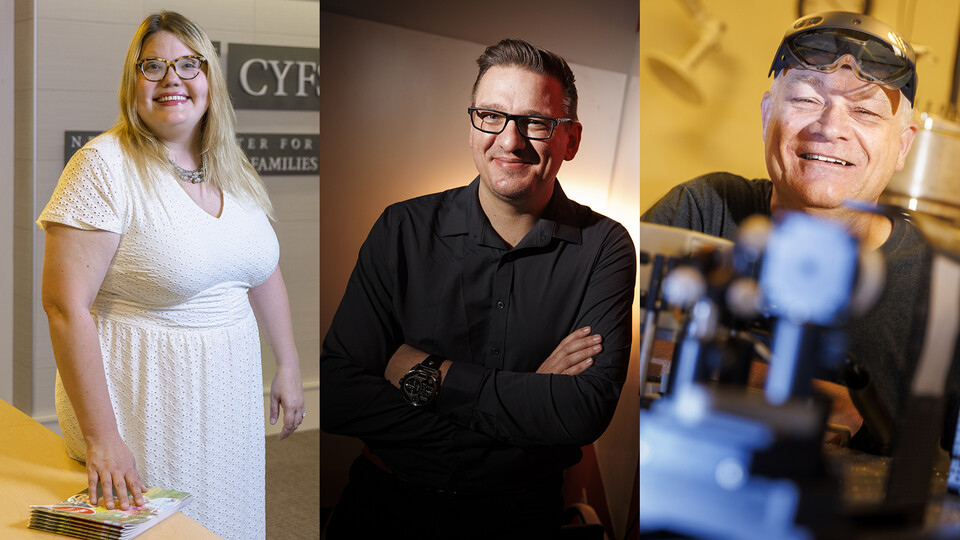
by Research and Economic Development
Innovative research proposals aimed at preventing sexual violence among indigenous youth, replicating the human immune system, and exploring quantum phenomena have earned funding through the University of Nebraska–Lincoln’s first Grand Challenges Catalyst Competition.
Organized by Chancellor Ronnie Green and Bob Wilhelm, vice chancellor for research and economic development, the awards are part of a $40 million commitment to fund work that directly connects to the university’s Grand Challenges initiative.
Announced Aug. 30, this initial phase includes 13 awarded projects — three lead “Catalyst” awards and 10 planning grants — and represents a $10 million investment.
“These awards reflect our university’s commitment to doing big things,” Chancellor Ronnie Green said. “I applaud each of our faculty who participated. You have opened doors to new possibilities, coming together to leverage individual strengths and solve big, overarching issues that are important to Nebraska and the world.”
Teams receiving Catalyst awards will be led by Katie Edwards, associate professor of educational psychology; Tomas Helikar, associate professor of biochemistry; and Kees Uiterwaal, associate professor of physics and astronomy.
Through the catalyst competition, faculty were challenged to imagine how their research, scholarship, creative activity and outreach activities intersect with the challenge areas and to identify unique problems they could work across disciplines to help solve.
Helikar, whose Cell Collective grant receives support from the Center for Science, Mathematics and Computer Education, proposed a Digital Twin Innovation Lab. Nearly every industry that deals with complex data uses digital twin technology — a simulatable computer replica of a real-world system. The team led by Helikar aims to apply this concept to create a digital twin of the human immune system. No large-scale digital twin of any human biological system exists, but the U.S. Food and Drug Administration announced recently that it would consider supplementing or replacing clinical trials with models simulated on virtual patients. The team is developing infrastructure to help visualize the complexity of the immune system using state-of-the-art computing and artificial intelligence. The project includes eight researchers and 16 additional partners and advisers. The project received a five-year, $5,039,652 grant through the Grand Challenges initiative.
Ten additional proposals were awarded planning grants through the competition. The awards support teams that are developing project ideas around one or more themes. The planning grants are intended as a springboard for aspirational projects that are expected to compete for future Catalyst awards.
Of the 10 planning grants, the CSMCE is affiliated with the executive teams of Professor of Chemistry Mark Griep's “Midwest Science Engagement Consortium" project and Professor of Earth and Atmospheric Sciences David Harwood's “Ice Coring and Education Silo.”
Learn more about the other awards at https://news.unl.edu/newsrooms/today/article/edwards-helikar-uiterwaal-earn-first-grand-challenges-grants/.